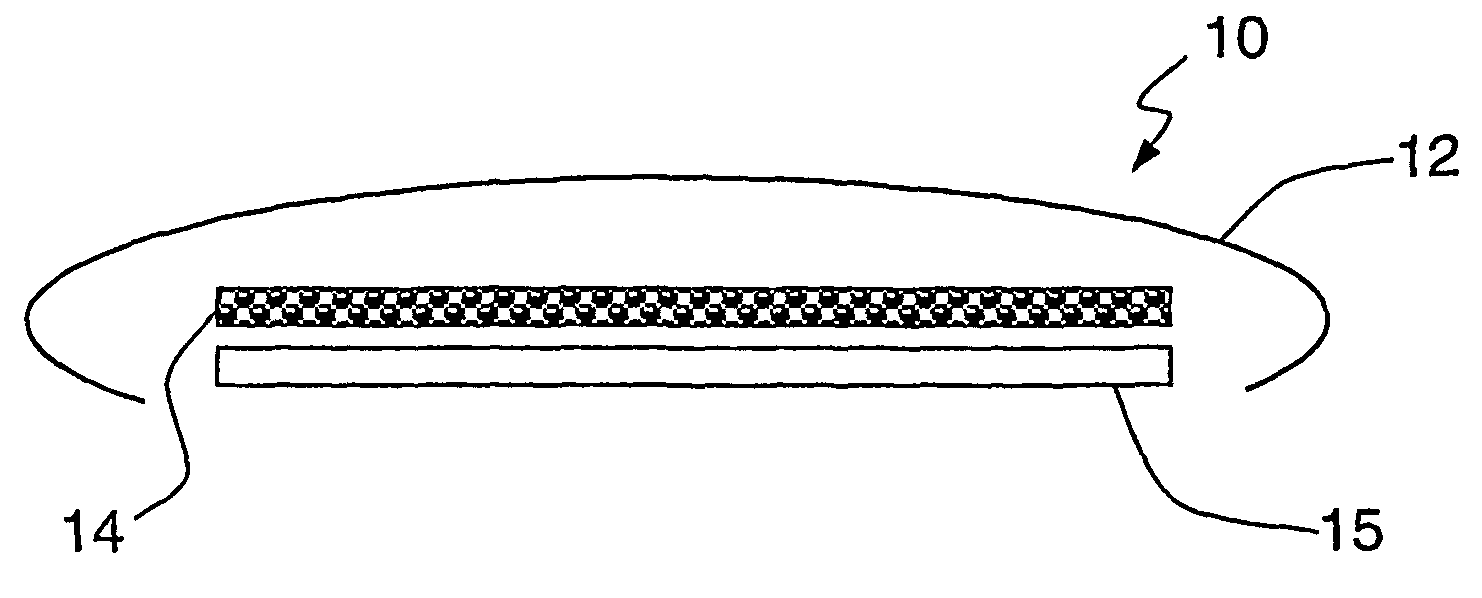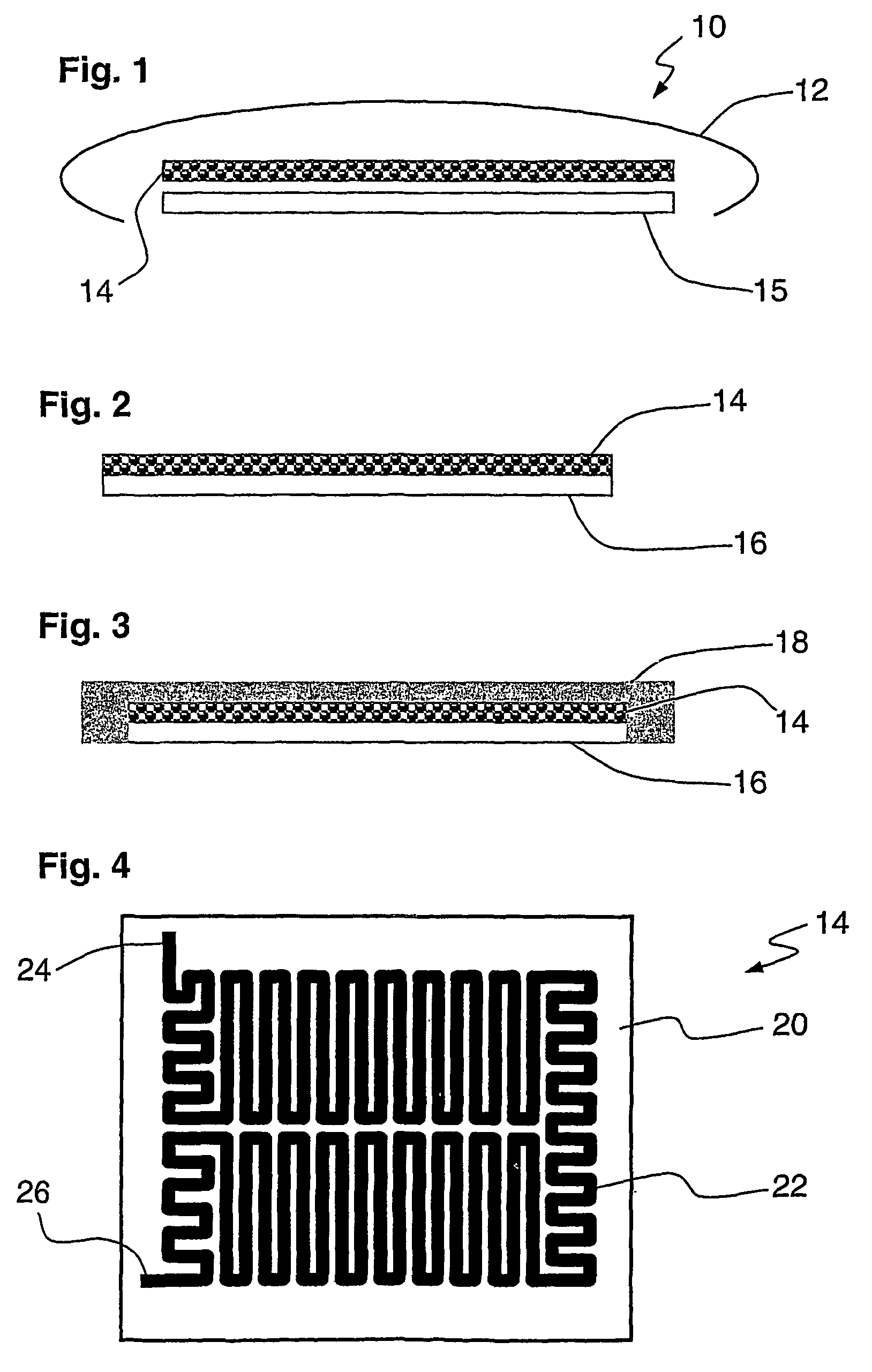Functional therapeutic heater
a heater element and therapeutic technology, applied in the field of therapeutic heater elements, can solve the problems of lack of breathability, high cost, brittleness, etc., and achieve the effects of reducing the number of patients
- Summary
- Abstract
- Description
- Claims
- Application Information
AI Technical Summary
Benefits of technology
Problems solved by technology
Method used
Image
Examples
Embodiment Construction
[0053]FIG. 1 shows a schematic view of a thermal treatment pad 10 according to an embodiment of the invention. Skin contact layer 15 has disposed above it a flexible, breathable metallised fabric heater element 14 that is described in more detail below. The pad is held together and affixed to a patient's skin by adhesive layer 12.
[0054]FIG. 2 shows a schematic view of a laminated structure including a wound contact layer 16 laminated to heater element 14. The wound contact layer is, for example, a woven gauze material of low adherence that is known in the art of wound dressings. Alternative materials for the wound contact layer include a low adherence film, mesh or nonwoven fabric (including absorbent and superabsorbent compositions).
[0055]FIG. 3 shows the laminated structure of FIG. 2 incorporated into an island wound dressing. Adhesive retaining layer 18 is laminated to the back surface of the heater element 14 and extends forwardly to be substantially flush with the front surface...
PUM
 Login to View More
Login to View More Abstract
Description
Claims
Application Information
 Login to View More
Login to View More - R&D
- Intellectual Property
- Life Sciences
- Materials
- Tech Scout
- Unparalleled Data Quality
- Higher Quality Content
- 60% Fewer Hallucinations
Browse by: Latest US Patents, China's latest patents, Technical Efficacy Thesaurus, Application Domain, Technology Topic, Popular Technical Reports.
© 2025 PatSnap. All rights reserved.Legal|Privacy policy|Modern Slavery Act Transparency Statement|Sitemap|About US| Contact US: help@patsnap.com


